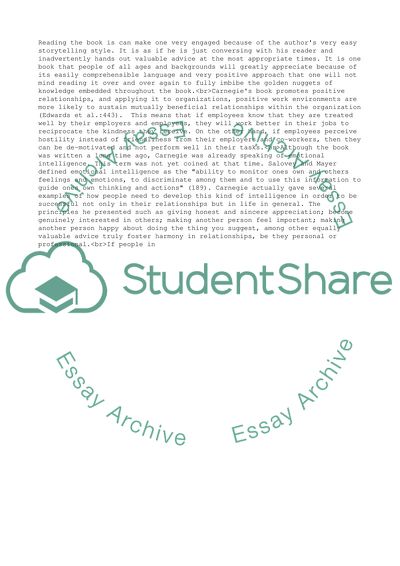Cite this document
(“Book review----How to Win Friends and Influence People Report/Review”, n.d.)
Book review----How to Win Friends and Influence People Report/Review. Retrieved from https://studentshare.org/management/1663427-book-review-how-to-win-friends-and-influence-people
Book review----How to Win Friends and Influence People Report/Review. Retrieved from https://studentshare.org/management/1663427-book-review-how-to-win-friends-and-influence-people
(Book Review----How to Win Friends and Influence People Report/Review)
Book Review----How to Win Friends and Influence People Report/Review. https://studentshare.org/management/1663427-book-review-how-to-win-friends-and-influence-people.
Book Review----How to Win Friends and Influence People Report/Review. https://studentshare.org/management/1663427-book-review-how-to-win-friends-and-influence-people.
“Book Review----How to Win Friends and Influence People Report/Review”, n.d. https://studentshare.org/management/1663427-book-review-how-to-win-friends-and-influence-people.


